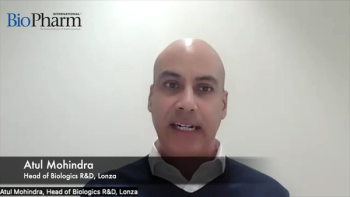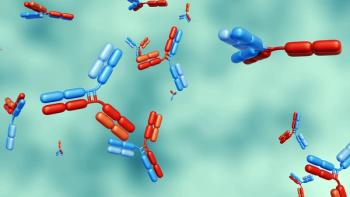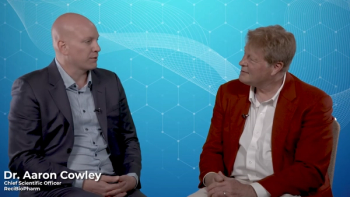
The company plans to assess alternate payloads for its gene therapy program, which will shift its timeline.

The company plans to assess alternate payloads for its gene therapy program, which will shift its timeline.

Development of new modalities of biotherapeutic molecules will rely on manufacturing, regulatory, and collaborative support.

Under this early stage R&D collaboration, the companies aim to engineer recombinant biologics for blocking Fc receptors, which play a key role in autoimmune diseases.

Treatment for cancer continues to drive immense innovation in the drug development pipeline, with advanced cell therapies, vaccines, and ADCs taking center stage.

The UK MHRA has granted approval for garadacimab for use in preventing angioedema attacks in patients 12 years old and older who have hereditary angioedema.

The approval makes Enhertu (fam-trastuzumab deruxtecan-nxki) the first HER2-directed therapy in the United States for treating HER2-low or HER2-ultralow metastatic breast cancer.

Lonza will develop spray-dried formulations for an intranasally delivered biologic using a reformulated biologic drug candidate for obesity in Iconovo’s pipeline.

This latest fast track designation marks the second such designation by FDA for J&J’s tau-directed investigational therapies for treating Alzheimer’s disease.

The new company will harness splicing technology to innovate safer and more effective RNA therapies for severe genetic diseases.

The companies will advance the development of Innovent’s ADC candidate, IBI3009, which has received IND approvals in the US, China, and Australia.

Atul Mohindra, head of Biologics R&D at Lonza, discusses the challenges and successes of bispecific antibodies as well as the field’s future direction from a CDMO perspective.

Advancements in bioprocessing and analytics are crucial to the future development of bispecific antibodies and beyond.

The results garnered from the Phase IIb study failed to achieve statistical significance in the primary endpoint.

AbbVie has completed its $1.4 billion acquisition of Aliada Therapeutics, giving it access to Aliada’s disease-modifying therapy for Alzheimer’s disease.

Eisai Europe and Biogen have received a positive opinion for the monoclonal antibody therapy to be used as a treatment of adult patients with early Alzheimer’s disease.

Avantor executives discuss the future of the biopharmaceutical industry and the impact that a wave of next-generation biotherapeutics will bring.

With the launch of the Institute for Cell Therapy Discovery and Innovation, the MD Anderson Cancer Center will bring together expertise in developing cell therapies for cancer, autoimmune diseases, and infections.

Under an agreement, Leads Biolabs has granted the new company, Oblenio Bio, an exclusive option to license LBL-051, a tri-specific T-cell engager antibody.

The companies expect to accelerate the clinical development of MRT-6160, a Phase I drug candidate, as well as explore further therapeutic opportunities across multiple indications.

Through the collaboration, Merck will use Mestag’s proprietary RAFT platform to investigate the pathogenic role that fibroblasts play in inflammatory diseases.

During Bio 2024, Aaron Cowley, PhD, chief technical officer and co-founder, Captozyme, discussed the advancement in development of microbiome-derived therapeutics.

Under a deal worth potentially up to $1.3 billion, Merck, known as MSD outside of the United States and Canada, will acquire CN201, a next-generation bispecific antibody, from Curon Biopharmaceutical.

Genentech will leverage Sangamo’s proprietary capsid delivery platform and epigenetic regulation capabilities to develop genomic medicines to address certain neurodegenerative diseases.

Biopharmaceutical production faces the challenge of ensuring the quality of raw materials due to a lack of specific guidelines. By implementing effective risk assessment strategies and working with reliable, selected solution providers, biopharmaceutical manufacturers can minimize these challenges and improve product quality.

The new biotech company will use the Series A financing to advance the development of enhanced biologics to treat solid tumors and inflammatory and immunology diseases.